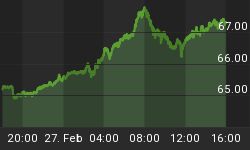It was with disbelief that most viewers watched Michael Moore’s documentary Where to Invade Next recount how children in France had never tried Coca-Cola. Likewise, most regulators raised their eyebrows when Jamie Oliver attempted to reform America's school lunch programs.
Now, Western governments appear to be mobilizing as one state in Mexico bans the sale of junk food and sugary drinks to children.
This is where globalization gets its first reality check thanks to the disastrous effects it’s had on health.
The Mexican state of Oaxaca, which has the highest child obesity rate in the country and the second-highest adult obesity rate, has just passed a law forbidding the sale, distribution and promotion of sugary drinks and junk food to minors.
The law, expected to take effect in October, will require front-of-pack nutrition labeling that clearly describes the health risks of consuming such products.
It’s not Mexico’s first attack on soda, but it is the most decisive. In 2014, Mexico attempted to quench the carbonated thirst with a tax on soda that amounted to about 5 cents per liter--but it apparently failed to have a widespread effect.
And now, local media report that other states might follow Oaxaca’s move.
Magaly López Domínguez, the state lawmaker who presented the bill, which is seen as an attack on the junk food industry, said: “The industry gets into the most remote corners of the state where there’s often not even medicines, but there’s Coca-Cola.”
The law will also apply to vending machines in schools. Companies violating vending machine placement can be fined and have their businesses close, while re-offenders can face jail time.
So far, the move has led to protests by local shop owners and street sellers, naturally; but the real opposition will be on a much larger scale, and this is where junk food gets political.
The soft drink industry views this as the state’s way of laying all the blame for healthcare insufficiencies during a pandemic on soda.
Meanwhile, Reuters reports that the U.S., Canada and the European Union are demanding that Mexico delay implementation of the law. Canada is asking for a 12-month delay, while the EU and U.S. are seeking a two-year delay. .
The World Trade Organization (WTO) has stepped into the melee, as well. On Monday, the WTO published the minutes of a meeting of the Committee on Technical Barriers to Trade from mid-May during which the U.S. delegation said it supported Mexico’s public health objective of reducing diet-related non-communicable diseases, but at the same time, money is money.
More specifically, the U.S. delegation noted its concern that the planned labeling may be “more trade restrictive than necessary to meet Mexico’s legitimate health objectives.”
Several studies have shown that obesity increased rapidly in Mexico after it joined the North American Free Trade Agreement (NAFTA) in the early 1990s, making processed food more accessible.
Today, the country boasts status as the largest consumer of processed food in Latin America and the fourth-largest in the world.
Just over 75% of the population aged 20 or older in Mexico is either overweight or obese compared to one-fifth of the people in the early 1990s.
Even worse, with 170 liters per year, Mexicans consume more carbonated drinks per person than any other nation.
And the state-level Mexican bill also carries an important element of timing: Amid a global pandemic, it’s hard to argue against improved healthcare measures.
While there is no data directly linking obesity to COVID-19 survival, it has been noted in the United States that approximately one-third of children infected with COVID have required hospitalization and that 42% of 208 children in a CDC analysis had at least one condition. That one condition was most often obesity.
By Michael Kern for Safehaven.com
More Top Reads From Safehaven.com:
















